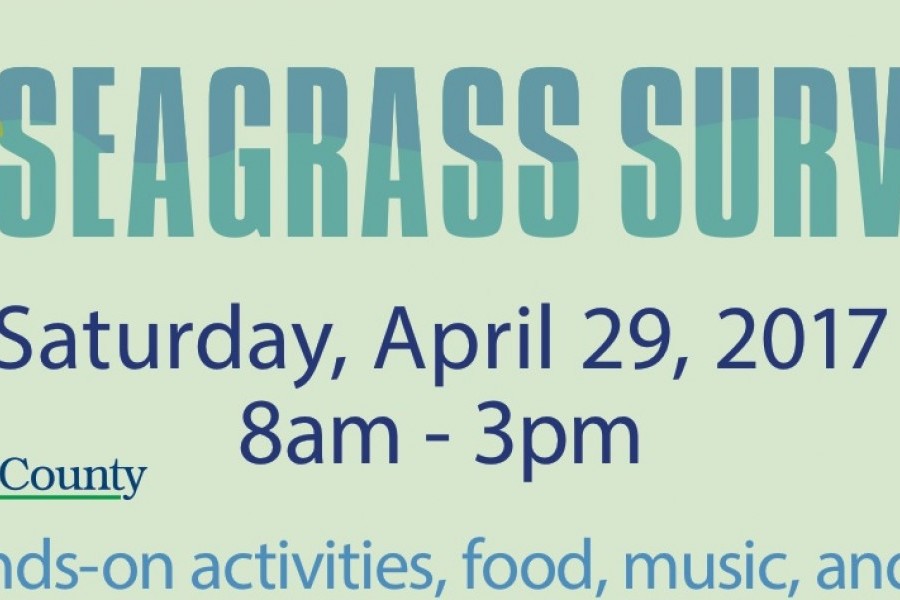April 29: Annual Seagrass Survey to connect the public with Sarasota Bay
Join Mote Marine Laboratory scientists as they participate in the Sarasota County Seagrass Survey, in coordination with the Sarasota Bay Estuary Program (SBEP). This free, family-friendly event will take place on April 29 at the Sarasota Sailing Squadron (1717 Ken Thompson Parkway, Sarasota, Florida).
The Seagrass Survey is a free citizen science event that celebrates Sarasota County’s commitment to its water resources and focuses on increasing awareness of the economic and environmental value of seagrass habitat. Survey volunteers will take to the waters around Sarasota Bay to count and identify seagrass species, in an effort to collect data for the County's Seagrass Monitoring Program.
Registered volunteers will start the morning with the Seagrass Survey from 8 a.m. to 1 p.m., and then stick around for nature-themed games, crafts, and other hands-on activities from 11 a.m. to 3 p.m.
Mote staff scientists Jim Culter and Dr. Emily Hall, along with staff from SBEP, Sarasota County and others, will assist in training volunteers on seagrass species identification, data gathering, fieldwork basics and tips for making the most out of this unique experience.
- Seagrass Survey volunteers can register online until April 24 by visiting: 2017SeagrassSurvey.EventBrite.com. Registered volunteers will receive a free t-shirt and free lunch voucher (redeemable at one of the food truck vendors present at the event).
Those not registered to volunteer can still enjoy the free activities at the Sailing Squadron. Come make shell necklaces with Sarasota Bay Watch, decorate reef balls with Reef Innovations, observe a net mending demonstration from the Florida Maritime Museum, learn about sea turtles with the Longboat Key Turtle Watch and get up close and personal with live estuarine creatures with SBEP. Live music and local food trucks will round out the festivities from noon to 3 p.m. Parking will be available outside the Sailing Squadron off Ken Thompson Parkway.
Mote scientists work with marine species found in seagrass beds, for example, advancing community scallop restoration efforts and educating the public about Sarasota’s Bay’s shellfish populations.
Mote researchers aim to learn why the once-abundant bay scallop has been declining in population size over the past decades. A healthy population of scallops leads to improved water quality, turbidity and nutrient reduction at no cost. Scallop population health is correlated with healthy seagrass beds and ecosystem stability.
Research with Mote's nursery-raised scallops and wild scallops is integral to learning more about the cause of declines and defining restoration options to ensure the future health of our local marine ecosystems.
In addition, Mote scientists also study the possible impacts of ocean acidification, a concerning ocean-chemistry change that might ultimately affect multiple species, including shellfish.
